MIEM HSE’s Annual Technoshow Will Be Held Online
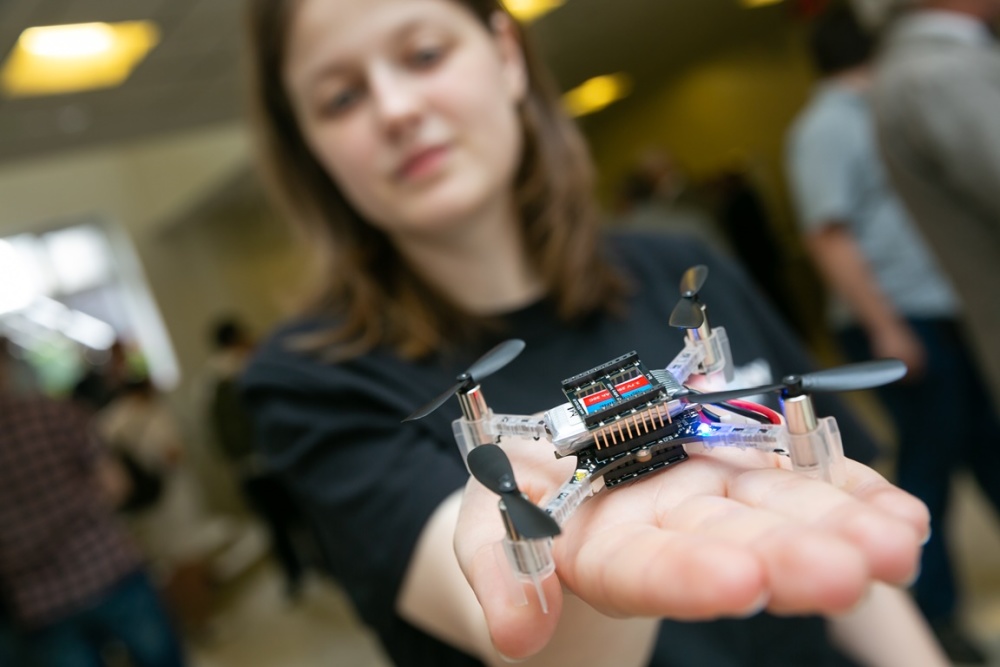
On May 31, MIEM students will present their projects at the Institute’s annual exhibition, which this year will be held online. Of 200 team projects created at the Institute this past academic year, the expo will feature the 25 most brilliant and successful, both in terms of innovation and practicality.
The Technoshow is not just a project exhibition. ‘The Technoshow has become a celebratory event that marks the completion of each year at the Institute, where we focus on project-based learning,’ says MIEM Director and Academic Supervisor Evgenii Krouk. ‘The pandemic is no reason to abandon it.’ In virtual pavilions, student team leaders will present their projects, many of which were initiated by the Institute’s business partners.
HSE News Service spoke with MIEM faculty members about how projects are selected for the expo, which areas show the most promise for next year, and how MIEM is continuing to expand its project-based education.
Maxim Chuyashkin, Director of the Center for Project Development Management at MIEM
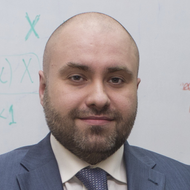
How students get involved in a project
Throughout the year, the project office accepts project applications from departments and faculty members, external clients, and students. All applications go into our Project Sandbox, where they undergo an initial evaluation that checks their general idea, the completeness of the project description, and the project’s overall significance. At the second stage, MIEM teachers evaluate the applications in terms of their content, the complexity of their implementation, their potential usefulness, and so on. At this stage, the size and composition of the project team are also determined, and a team leader is recommended. After passing all of these assessment stages, the project is entered into the catalog of available projects, where potential team members select them. To get onto a team, you need to apply and successfully pass an interview with the project manager.
At the end of the academic year, students begin to choose their projects for the next year, reach out to potential leaders, and form teams. Team members are encouraged to learn and apply new skills.
Veronika Prokhorova, Deputy Director of MIEM
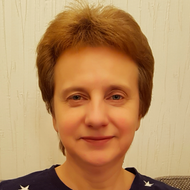
Project work at MIEM
Our institute turned to project-based education in 2018, focusing on third-year students. Since then, we have been constantly increasing the number of projects, more and more students are getting involved in project work, and the number of companies we partner with continues to grow. But much more importantly, students and teachers’ attitudes towards the educational process are changing, as well as the approach we take to designing the curriculum itself. More and more activities are built around projects. The learning process is no longer just learning. The Institute has strengthened its standing as a place of scientific discovery, innovative product creation, and self-realization. In short, we are building an open, project-oriented MIEM, and we believe that together we can find the right solutions.
Anton Sergeev, MIEM Advisor, Expert and Project Manager
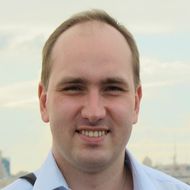
Industry Demand
From our industry partners, we are seeing an explosive increase in interest in artificial intelligence systems, machine learning, big data, and the Internet of things. If a few years ago these things were just trendy hot topics, now a lot has changed. We receive carefully thought out requests for promising robotic systems in a wide variety of industries, including security, education, transport, and trade. The business sector has a clear understanding of how to make money using smart technology. They come to MIEM to test out their bold hypotheses by enlisting clever minds and young talents. Within the framework of the project model, we can assemble student teams for almost any task in IT or microelectronics, quickly test hypotheses, or assemble a prototype. This is convenient for large companies, and they see the benefit of working with a university in practice.
Of course, right now you can’t overlook the impact of COVID-19—the world is actively moving online. We make new digital products both for ourselves and for partners. Now the educational issue of online instruction is largely resolved. The next step is robotic proctoring, when the system itself monitors the class. The problem of how to remotely access laboratory equipment remains to be solved. There is a demand for these decisions both in the education system itself and in business. And MIEM has already begun working on these kinds of systems.
Vasily Burov, MIEM Advisor, Expert
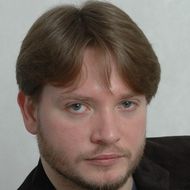
Trends, directions, and areas of development
A significant number of the Institute’s current projects relate to cyberphysical systems, which is a field that does not get a lot of attention but is in fact one of the world’s fastest growing today. This is all related to the Internet of things, robotic systems, smart things, and industrial and home automation. In particular, I would like to mention the project areas related to medical applications at the intersection of mathematics, cybernetics, and electronics. This has already been a crucial area on the global stage for a long time, but now with the coronavirus pandemic, which we have all been enduring for the past several months, I think that interest in this field in Russia will only increase.
Another promising area that cannot be ignored is security apps. The modern digital world presents completely new demands in this area, and our students are quite capable of developing programmes to meet these demands. For example, this year there was a number of popular projects related to banking operation security using serious mathematical models and artificial intelligence technologies.
Denis Korolev, Associate Professor, School of Computer Engineering, MIEM, one of the Institute’s project direction visionaries, head of several projects
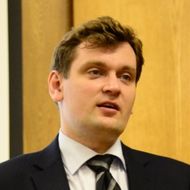
Digital MIEM: virtual pavilions at the Technoshow and an important direction for the Institute
This past year, we digitalized and upgraded a lot of aspects of MIEM. This was largely to the merit of our students, without whom we never would have been able to manage such a number of different tasks on our own. This included not only online services, but also building infrastructure (magnetic locks, video rooms, our miniature assembly hall on the 1st floor, and a media center). Building everything from the ground up, we established project work support, and, with the transition to online education, we launched our own online learning environment within a couple of weeks. More precisely, we added missing elements and linked them to existing services.
Those involved in all this did a great job. But the plan for next year looks even more impressive. To the already large number of new endeavors we have planned, we have added refining and developing support for those that have already been completed. We will also be in charge of the services that MIEM faculty and students use and are now critical for both project-based and academic work: personal accounts, digital footprints, flexible tracks, single window, and other projects.
That is far from all. Some of our plans go beyond the confines of MIEM. We are working on a ministerial project, building commercial services, and more. A few years ago, I would not have taken these fantasies seriously, but MIEM has changed a lot, and the main driver in this regard has been the students. Especially those who stay with us. In projects, in the master’s programme, and in the doctoral programme, those who remain at MIEM—those who care, those who believed us—bring their visions and ideas to fruition.
Valeria Nemna and Polina Podkopayeva contributed to this article.
See also:
Overcoming Challenges as a Team: Students of the School of Foreign Languages Present Innovative Projects for Companies
Following an established tradition, the HSE School of Foreign Languages held a pre-New Year poster session, during which fourth-year undergraduate students of the Foreign Languages and Intercultural Communication programme defended their practice-oriented projects. The assessment panel included representatives of major companies and organisations. Working together with HSE students, they shared their professional experience, skills, and expertise.
‘It’s Important to Me Not to Rest on My Laurels’
Uliana Kisataeva, a student at the HSE Graduate School of Business, was one of the winners of the UN Global Compact PRME 2025 Business Case Competition supported by the United Nations. As part of the competition, Uliana presented a digital platform called Green B2B Match, which can help businesses reduce their carbon footprint and contribute to the development of responsible consumption. In an interview with the HSE News Service, she spoke about her project, the competition, and her victory.
HSE University Presents Smart Orthosis at Hope for Technology Forum
On July 10–11, 2025, Moscow hosted the 10th Hope for Technology National Forum of the Rehabilitation Industry and Universal Design. The event was aimed at discussing innovative achievements in the rehabilitation industry. The MIEM Student Design Bureau and the HSE Institute for Cognitive Neuroscience presented a smart orthosis, which was developed at the request of orthopedists.
Real Tasks and Direct Interaction with Employers: HSE School of Foreign Languages Holds Poster Session
For the second time, the HSE School of Foreign Languages has held a defence of specialised projects developed by fourth-year students of the Bachelor’s Programme in Foreign Languages and Intercultural Communication. Representatives of major companies and organisations that support the school’s project activities gathered to evaluate the projects during a poster session.
Scientarium: Integrating Student Scientific Associations and HSE University Projects
In early July, the Voronovo Study Centre hosted Scientarium, an off-site session for representatives of HSE University student research communities organised by the university’s Centre for Student Academic Development and Unit for the Popularisation of Science. More than 50 students from 10 scientific student associations and three campuses took part.
From Ingenious Fungi to Post-feminism: HSE University Hosts Season’s Last Science Battles Semi-Final
Season VI of Science Battles at HSE University is entering the homestretch. The June semi-final determined the list of finalists and helped many viewers choose their favourites. This time, young researchers decided to figure out how to conduct a police lineup without destroying a person’s life, as well as how to improve a child’s academic performance without instilling neurotic perfectionism. They also found out that fungi and mould help heal scars and save the environment, and that adherents of post-feminism have very mixed feelings about their own images on TikTok.
Smart Medicine, Libration Points and Electromyographic Bracelets: MIEM Students Present Their Projects
In February, a two-day poster session - the second checkpoint of the project life cycle - was held at the HSE MIEM. The participants prepared colorful posters, talked with experts and MIEM students and received well-deserved plaudits. Here, the HSE News Service looks at some student projects.
Submarine and French Confectioner's Shop—Winners of the Top Class Research Competition Announced
This year’s final stage of Top Class, the All-Russian Competition of Schoolchildren’s Research and Projects, held by HSE University, has come to a close. About a thousand 8th—11th graders from 7 countries and 69 regions of Russia participated in the contest. The winners and runners-up were announced at the closing ceremony in the HSE Cultural Centre. They received special prizes from partner companies.
Winning Research Initiative Projects to be Implemented by the End of 2022
In April, the results of the Research Initiative student project competition were announced at HSE University. Twenty-two team applications were submitted by students of 20 different fields of study at HSE University’s campuses in Moscow, Perm, and Nizhny Novgorod. Based on the results of expert assessment, the competition committee approved 17 interdisciplinary projects to be implemented by December 2022.
HSE University Holds School of Snow in Perm Region
On February 15–17, the Winter SOS (School of Snow) was held at the Zhebrei ski resort. The event was organised by the HSE Perm Tourist Club and the Student and Alumni Centre. In addition to learning to ski and snowboard, students from all HSE University campuses developed and defended projects focused on the development of domestic tourism in their regions. SOS participants shared their impressions with the HSE News Service.


